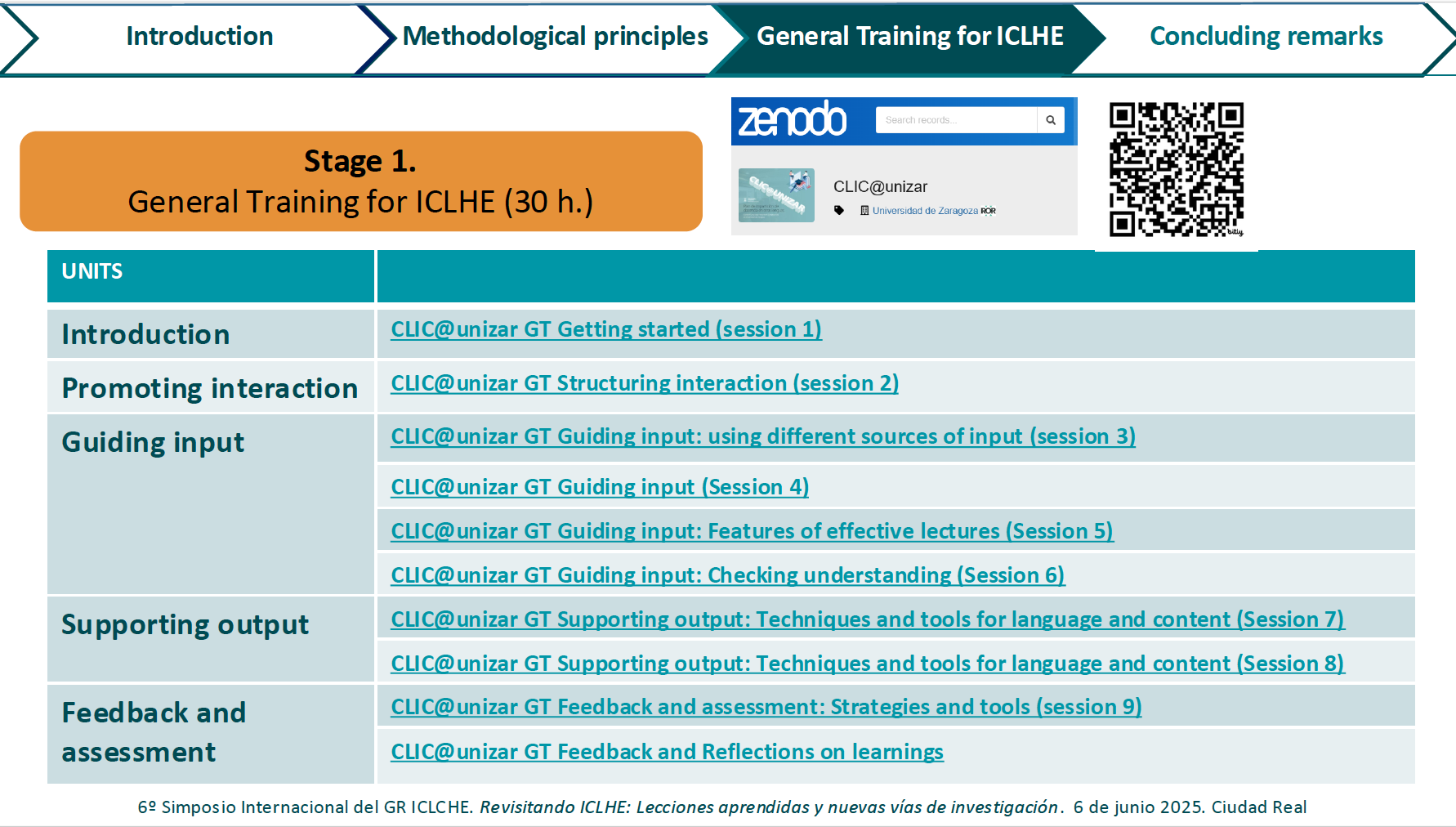6TH SYMPOSIUM GR ICLHE: Pilar Mur-Dueñas presents a foundational ICLHE training course

Our team member, Dr. Pilar Mur-Dueñas, participated in the 6th International Symposium “Revisiting ICLHE: lessons learned and new research approaches”. It was organized by the research group DILEAR on the 5th and 6th of June 2025, at the University of Castilla La Mancha (Ciudad Real). It was an opportunity to bring together international researchers and teachers who explore current challenges and future opportunities of the ICLHE approach (Integrating Content and Language in Higher Education).
Her paper, entitled “An ICLHE training foundational course: Methodological principles followed and resources designed”, deals with the design, implementation, and evaluation of professional development programs. She shared and discussed methodological principles followed at CLIC@unizar that aim to foster digital tools in the classroom and engagement strategies.
You can read her abstract below:
An ICLHE training foundational course: Methodological principles followed and resources designed
Previous research has pointed out that professional development programmes play a crucial role in the success of ICLHE courses (e.g. Manchó-Barés and Arnón-Macià 2017; Pérez-Cañado 2020; Sánchez-Pérez 2020; Breeze and Sancho Guinda 2021; Morell and Volchenkova 2021; Ruiz-Madrid and Fortanet-Gómez 2022). However, designing, implementing and evaluating these programmes is not an easy task and many challenges are to be faced. One of them is the design of tailored materials and resources that can meet participants’ needs. It is the aim of this paper to present the main methodological principles of the training programme developed at our institution, CLIC@unizar, and to illustrate how these have been applied in the design of the course General Training for ICLHE, which consists of 30 contact hours, and which is established as a foundational course within the itinerary.
First, we will explain the foundational framework of our training, which is predicated on sequenced learning units and the principles of visible learning and teaching. We will explore the integration of digital tools and the strategies employed to foster active participation and engagement among lecturers. Furthermore, we will detail the objectives and organizational structure of the course, while also presenting ten digital self-contained lesson plans corresponding to the ten three-hour sessions that comprise its syllabus. These resources are accessible through our CLIC@unizar Zenodo community, fostering wider dissemination and collaboration within the educational research community.
References
Breeze, R., & Sancho Guinda, C. (Eds.). (2017). Essential Competencies for English-medium University Teaching. Springer.
Manchó-Barés, G. & Arnón-Macià, E. (2017). EMI lecturer training programmes and academic literacies: A critical insight from ESP. ESP Today, 5(2), 266–290.
Morell, T., & Volchenkova, K. (2021). Introduction. English Medium Instruction (EMI) Teacher training in Higher Education. Special Issue of Revista Alicantina de Estudios Ingleses, 34, 7–14.
Pérez-Cañado, M.L. (2020). Addressing the research gap in teacher training for EMI: An evidence-based teacher education proposal in monolingual contexts. Journal of English for Academic Purposes, 48.
Ruiz-Madrid, M.N. & Fortanet-Gómez, I. (2022). Teacher professional development for the integration of content and language in higher education. Innovation in Language Learning and Teaching, 16 (4-5), 277–280. https://doi.org/10.1080/17501229.2022.2123678
Sánchez Pérez, M.M. (Ed.). (2020). Teacher Training for English Medium Instruction in Higher Education. IGI Global.
